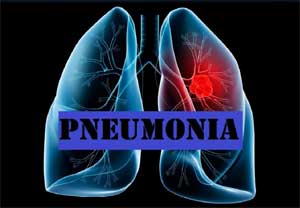- Home
- Editorial
- News
- Practice Guidelines
- Anesthesiology Guidelines
- Cancer Guidelines
- Cardiac Sciences Guidelines
- Critical Care Guidelines
- Dentistry Guidelines
- Dermatology Guidelines
- Diabetes and Endo Guidelines
- Diagnostics Guidelines
- ENT Guidelines
- Featured Practice Guidelines
- Gastroenterology Guidelines
- Geriatrics Guidelines
- Medicine Guidelines
- Nephrology Guidelines
- Neurosciences Guidelines
- Obs and Gynae Guidelines
- Ophthalmology Guidelines
- Orthopaedics Guidelines
- Paediatrics Guidelines
- Psychiatry Guidelines
- Pulmonology Guidelines
- Radiology Guidelines
- Surgery Guidelines
- Urology Guidelines
Bacterial Pneumonia causes worse heart complications than Viral Pneumonia

U.S.A: A new study reports that bacterial pneumonia causes more serious heart complications than viral pneumonia. The findings of the study were presented at the American Heart Association Scientific Sessions in Chicago.
The researchers from the Intermountain Heart Institute, in a study including nearly 5000 participants found that patients diagnosed with bacterial pneumonia had a 60 percent greater risk of a heart attack, stroke, or death than patients who had been diagnosed with viral pneumonia.
Read Also: New Innovation-Thermistor-based device may detect pneumonia
“We’ve always known pneumonia was a risk factor for a major adverse cardiac event, like a heart attack, within the first 90 days of being diagnosed,” said J. Brent Muhlestein, MD, a cardiovascular researcher with the Intermountain Heart Institute at Intermountain Medical Center. “What we didn’t know was which type of pneumonia was more dangerous. The results of this study provided a clear answer, which will allow physicians to better monitor patients and focus on reducing their risk of a major adverse cardiac event.”
The researchers evaluated 4,792 patients diagnosed with pneumonia who were hospitalized at one of Intermountain Healthcare’s 23 hospitals between January 2007 and May 2014. Each patient was followed for 90 days and tracked for non-fatal heart attacks, stroke, heart failure, or death.
The study found that nearly 80 percent of the patients were diagnosed with bacterial pneumonia, and 34 percent (1,270 patients) of them had a major cardiovascular event within 90 days. At the same time, 21 percent of the patients were diagnosed with viral pneumonia, and 26 percent (258 patients) had a major adverse event within the 90-day window.
According to the authors, the primary reason for this phenomenon is that bacterial pneumonia causes greater inflammation of the arteries compared to viral pneumonia. When arteries become inflamed, it destabilizes the layers of plaque that have built up over the years. The unstable plaque can then break loose from the artery wall and cause a blockage, which leads to a heart attack, stroke, or death.
Read Also: Vitamin C, hydrocortisone, and thiamine Combo reduces mortality in Severe Pneumonia
The authors recommended that people with known plaque buildup should be especially mindful of things they can do to prevent respiratory infections. and getting a flu shot, a Pneumovax, practicing proper hand hygiene year-round (and especially during cold and flu season) and quitting smoking immediately.
“The practical result of our study is that caregivers should be aware of the greater cardiovascular risks associated with respiratory infections like pneumonia, and especially bacterial pneumonia,” said Dr. Muhlestein. “If a patient has been diagnosed with bacterial pneumonia, treat it aggressively and watch them closely for any signs of a heart attack or stroke. If the patient is taking medications specific to a heart condition, like high blood pressure or cholesterol, they should continue taking those prescribed medications.”

Disclaimer: This site is primarily intended for healthcare professionals. Any content/information on this website does not replace the advice of medical and/or health professionals and should not be construed as medical/diagnostic advice/endorsement or prescription. Use of this site is subject to our terms of use, privacy policy, advertisement policy. © 2020 Minerva Medical Treatment Pvt Ltd